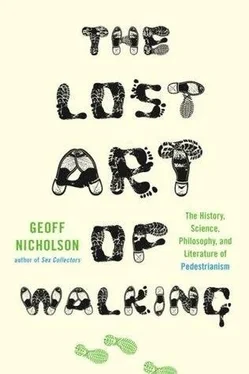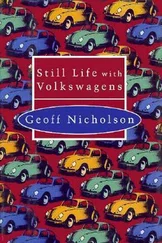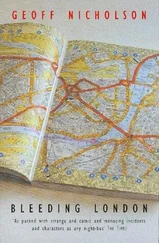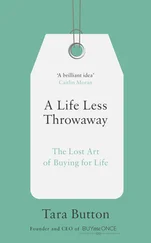So, I said, inviting him round the corner for a fight was enough to make a friend for life.
‘Of course, because if they respect you they’re fine. If they don’t respect you they’ll shit all over you. A cop once said to me, ‘What the fuck are you doing taking these pictures?’ And I’m an anti-police guy. He said, ‘If you took a picture of my wife and me walking on the street like that, I’d knock you out’.
‘I said, ‘You could try’. Who was he to talk to me that way, you know? So we became friends. It’s all about respect. If they respect you, it’s fine. If they don’t, then you have a problem.
‘And, you know, I’m not the toughest guy in the world, but I’ll stand up for my rights, within reason, though there are times when you have to put your tail between your legs and not take that picture.
‘And if you’re walking a lot, you can’t walk as well when you get older, you don’t react as fast and even some things mentally go through my head, like I’ll say why should I slam the camera in that eighty-year-old’s face, you know?
‘Whereas before I’d only be deterred by the fear factor — the fear factor would say, ‘You’re going to get your ass kicked’. You know, I’ve challenged people in the street. I can be quite ferocious but I’m also not stupid.
‘I walk hard in the streets, OK. Even when I’m not taking pictures. I was coming out of the subway the other day and I know when people are jerking with me, and there was this black guy, about thirty-five, solid, and he was going to get me, you know, I saw it, so I armed him, you know, with my elbow and he looked at me and said, ‘What are you doing?’ and I said, ‘Well, you know, I didn’t hear you say excuse me’, and I guess he knew that I wasn’t just going to roll over, so he kept going. But you have to walk hard and if you walk hard and look people in the eye and I’m quite aggressive, I really don’t want to fight because I already lost one camera in a fight and I lost the lens, too, so it was an expensive day for me.
‘But if you walk hard here and you’re smart, then people don’t think you’re weak. See, I find that if I’m strong and I tell people, ‘If you don’t like it, call a cop’, it discourages a lot of people. Once you show weakness, weak people take over. I want this and I want that and you’re not going anywhere, and then it’ll lead to more things and they’ll start touching you, start grabbing your arm, ‘Oh, I want the film’. So I think my mantra is I deal with it all the same way and the same attitude, that’s it, I don’t make an exception unless there are six guys, then I make an exception, you know, when I’m caught, then I try to look for the nearest exit. I never run. I walk. If you run, then you look like you’re in the wrong.
‘I’m very smart in the street, very streetwise. And I’ll be the first person to give someone a hand. There was a lady a few years ago and a black kid was annoying her. I went over to the lady, she was crying, so I said, ‘Don’t worry’, took the kid, and I threw him into these bushes. I can be kind but I can also be nasty. So…I’m a good friend, I’m not a good enemy’.
This sounded to me like the authentic voice of the New York walker. I thought it might be fun to be Bruce Gilden’s friend but not easy. When I left him I felt invigorated. There was something exciting in the way he described walking in New York as a risky activity, a form of combat, a struggle for dominance, sometimes a contact sport. I thought there was something very familiar and accurate about it, too. New York is a city where the people not only enjoy getting in your way as you’re walking down the street, they’ll actually go out of their way to obstruct your progress. They’ll inconvenience themselves for the greater pleasure of inconveniencing you.
But there’s a certain kind of hard walker, or perhaps a certain kind of crazy bastard, that people, even on the streets of New York, do leave room for. He looks madder and more determined than most, with a walking style that says ‘Get out of my way’, and most people do, because it’s also saying more than that. It’s saying ‘Get the fuck out of my way, get the fuck out of my face’. It’s saying ‘Fuck you. And if you’ve got a problem with that, then OK, let’s take it round the corner’. If you’re looking for an argument when you’re walking in New York, you can find one on every block.
As I walked away from the Magnum offices I started to move really fast and hard, my idea of the way Bruce Gilden walked, determined, fierce, kind of angry. It was only an act, only a pose that I was trying on for size, but I was serious about it, in some way I meant it, and it worked. It was strange and oddly gratifying because people really did start to move aside for me, to get out of my way. I don’t know if they really thought I was a madman looking for trouble, but they were taking no chances and I didn’t blame them. On most days I’d have done exactly the same. Most days you steer clear — you look at this poor bastard and see what New York has done to him, turned him into a furious walking monster. You have pity and contempt, a certain amount of fear, and maybe just a little sympathy. And then on other days you realize that the furious walking monster is you. What happens when you meet another of your own sort, when a Bruce Gilden walks into another Bruce Gilden, doesn’t bear thinking about. You probably wouldn’t want to be standing in the street next to it, but it’d be really interesting to see a photograph of it.
9. Walking Home and Away from Home
If you would attain to what you are not yet, you must always be displeased by what you are. For where you are pleased with yourself, there you have remained. Keep adding, keep walking…
— attributed to St. Augustine
My mother always said, in what at first might sound like an approving way, that as a toddler I’d been very eager to walk and had learned the skill early. Then, in a less approving way, she’d add that perhaps I’d walked too early, while the bones in my legs were still soft, and that’s why I’d developed such terrible bowlegs. I’m not sure that I have bowlegs at all, but if I do, then the bowing is so slight that nobody except my mother has ever remarked on it. I always said to her it was because I was so eager to get away. Welcome to my childhood.
I was born on the kitchen table of my grandparents’ house, literally in a dead-end street in northern England, in the steel-making city of Sheffield, in a tough, poor, lively working-class suburb called Hillsborough. The majority of the family lived within walking distance of one another. For that matter they lived within walking distance of everything they needed: shops, pubs, dog track, football ground, betting shop, church. The steel factories my uncles worked in were equally nearby. Next to them were the candy and soda factories where my female relatives worked. Everybody walked to work. Everybody walked everywhere. Everything you could want was right there, unless you happened to want something else.
♦
My parents and I lived in my grandparents’ house until I was about five years old, when we moved into subsidized public housing, ending up in a ‘council estate’ in a place called Longley. We had only gone a few miles, and we went back to Hillsborough at least once a week, but it was spoken of as though we’d moved to the outer fringes of the twilight zone.
An English council estate is similar to, but culturally very different from, an American housing project, and I think the name says a great deal. Both are places where the poor, underprivileged, and undereducated live, but Britain likes it to sound as though its poor people are on some grand country manor, while America prefers to think they’re part of a science fair experiment.
Читать дальше












